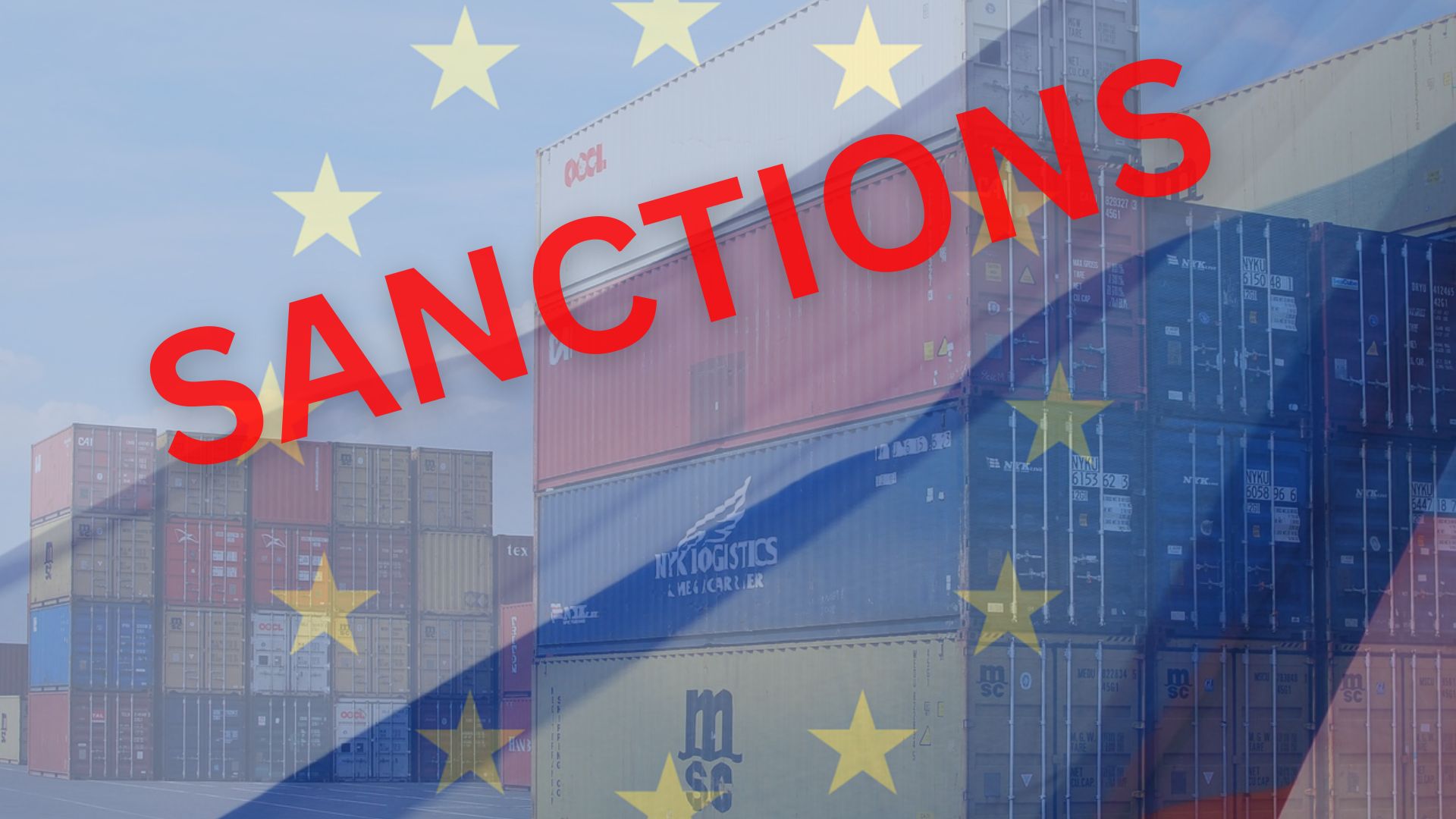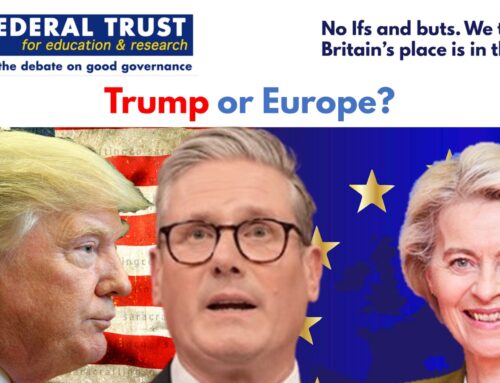New EU sanctions package crackdown on third country businesses evading Russia sanctions
The European Union (EU) adopted a 13th package of sanctions against Russia last month to mark two years since Russia’s invasion of Ukraine. In line with European Commission President Ursula von der Leyen’s pronouncement that “we must keep degrading Putin’s war machine”, the new measures target 88 companies and 106 individuals from the Russian military-industrial complex.
However, while the unprecedented levels of previous sanctions have targeted over 2,000 Russian officials and entities during the course of the war, Russia has expanded illegal back channels in importing dual-use and advanced technologies for military application via third party jurisdictions. As a result, sanctions enforcement and anti‑circumvention efforts by the EU have risen in importance and scale.
New Sanctions on dual-use and advanced technologies
EU restrictions on the export of dual-use and advanced technologies have been introduced in the previous 12 rounds of sanctions. The most sensitive such items used in Russian military systems are so-called “battlefield” or Common High-Priority (CHP) products. The new sanctions are designed to target these components with a focus on preventing the technological enhancement of Russia’s defence and security sectors.
The list of restricted items for export to Russia now covers parts for unmanned aerial vehicles (UAV). Specific products targeted include electric transformers, static converters and inductors found in UAVs, as well as aluminium capacitors, which have military applications.
Due to the EU’s previous rounds of sanctions, direct exports to Russia dramatically declined in 2023 (down by 97% compared to pre-war figures). So far, 58% of pre-war EU exports to Russia and 61% of pre-war EU imports from Russia have been placed under EU restrictive measures. These have included goods and technologies in sectors such as aviation, space, energy and maritime and other goods which enhance Russia’s industrial capacity.
Anti-sanctions evasion measures
As Russia has intensified efforts to evade sanctions, the EU has been continuously evaluating the effectiveness of its measures and addressing potential loopholes. The aim of the 13th round of sanctions is consequently on enforcement, especially in preventing the circumvention of EU sanctions through third countries.
The EU has asserted that full implementation of sanctions will be key in denying Russia’s government the revenue, goods and technology it requires to conduct its war by “further limiting Russia’s access to military technologies”.
As a first step, the EU will provide further support to member states in exercising effective enforcement of the sanctions already in place. Secondly, the EU will work closely with third countries to tackle Russian attempts at circumvention.
In particular, the list of non-Russian companies subject to enhanced export restrictions of dual-use and advanced technologies has been extended to cover ten non-Russian entities. For the first time, in this regard, the EU has sanctioned businesses from across Asia, including four companies from China and one each from India, Thailand, Turkey and Sri Lanka. Other companies from Kazakhstan and Serbia were also sanctioned.
The EU had previously looked to sanction several firms based in mainland China. Following a series of complaints from Chinese officials amid reservations from some member states, the EU decided to forestall any measures. But ever-closer economic ties between Russia and China which culminated in record bilateral trade of US$230 billion last year, has now prompted the EU to take action against the four Chinese companies which breached the sanctions.
In response to the EU’s measures, the Chinese government announced that the “consensus and spirit” of last December’s meeting between Chinese President Xi Jinping and EU leaders Ursula von der Leyen and Charles Michel “had been violated”. Beijing further warned it “will bring about a negative impact on China-EU trade and economic relationship.”
Indian officials have so far refrained from expressing any response to the sanctioning of an Indian business. Even so, reports have circulated in the country’s media stating that the government is examining the EU’s sanctions measure and whether it should protest the decision.
The new sanctions also apply to Russia’s growing trade in military equipment with North Korea. Up to ten Russian companies and individuals involved in the shipping of armaments from North Korea have been targeted. Moreover, North Korea’s Defence Minister, Kang Sun Nam, has been sanctioned for the supply of ballistic missiles to Moscow.
The EU’s sanctions special envoy, David O’Sullivan, has been reaching out to key third countries in preventing circumvention. According to O’Sullivan systems are being put in place in some third countries for monitoring, controlling, and blocking re-exports of EU goods.
A list of CHP sanctioned goods which businesses in third countries must not re-export to Russia has been agreed with several governments. In the EU, a list of sanctioned goods that are economically critical have also been drawn up over which EU businesses and third country governments should provide special attention to.
In spite of these specific measures, as O’Sullivan had admitted to broadcaster Euronews, “There’s always going to be a degree of circumvention. There’s money to be made.”
Accordingly, to further combat the risk of circumvention, the EU introduced a “No re-export to Russia” clause in its 13th sanctions package and which will come into effect from 20th March 2024. This provision will require that EU exporters contractually restrict their customers, in third countries, from re-exporting certain goods to Russia.
The clause will only apply to sensitive goods in sectors such as aviation and space, jet fuel and fuel additives, firearms and ammunition, and CHP goods. Although goods in these sectors are already prohibited for export to Russia, they are still identified by G7 countries as the highest risk exports for use by Russia’s military.
The contracts with customers in third countries are required to include “adequate remedies” in the event of breaching the “No Russia” obligation. While exporters can select their own wording for the clause, an indicative template is provided for use by EU operators.
UK implications of EU 13th sanction package
The UK has not introduced a measure similar to the EU’s “No Russia” clause. As a result UK exporters are not obliged to revise their contractual arrangements with third country parties, except in circumstances where their operations fall under EU auspices. There are also no limitations prohibiting the UK authorities in licensing sanctioned goods for export to Russia via a third country.
In any case, given the UK is an EU partner country, it is exempted from the “No Russia” clause since the EU considers it to exercise a robust sanctions enforcement regime. Moreover, in line with the EU, the UK has undertaken measures to prevent sanctions evasion through third countries. This includes UK exporters being required to operate appropriate due diligence procedures on end-users, intermediaries and counterparties in enforcing sanctions. Any deficiency in doing so can be considered a breach of the UK sanctions regime.
The 13th sanctions package also includes the UK in its list of partner countries for imports of iron and steel. These partner countries apply restrictive measures on imports of these goods which are recognized as equivalent to those in the EU. Imports from the UK have therefore been exempted from the requirement for EU importers to provide evidence of the country of origin of the iron and steel inputs.
Preparatory work on a 14th round of EU sanctions will commence in the near future. According to media reports this may entail dealing with unresolved issues over sanctions evasion on a highly sector-specific basis. From this perspective, the development of the EU sanction regimes will likely encounter significant overlap and need for close cooperation with UK sanctions given the high interdependence of their respective industries and geopolitical commonality of interests.






Leave A Comment